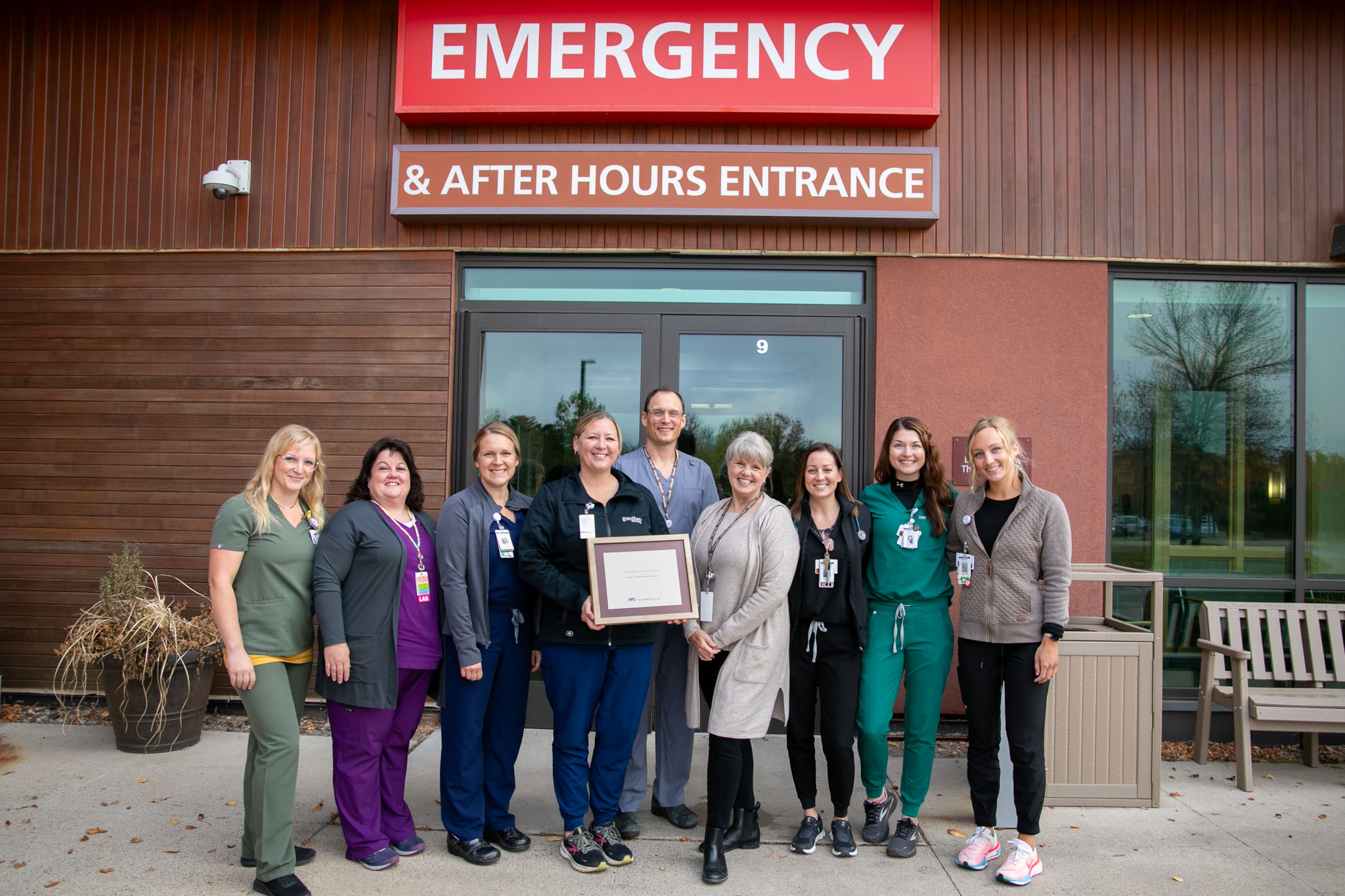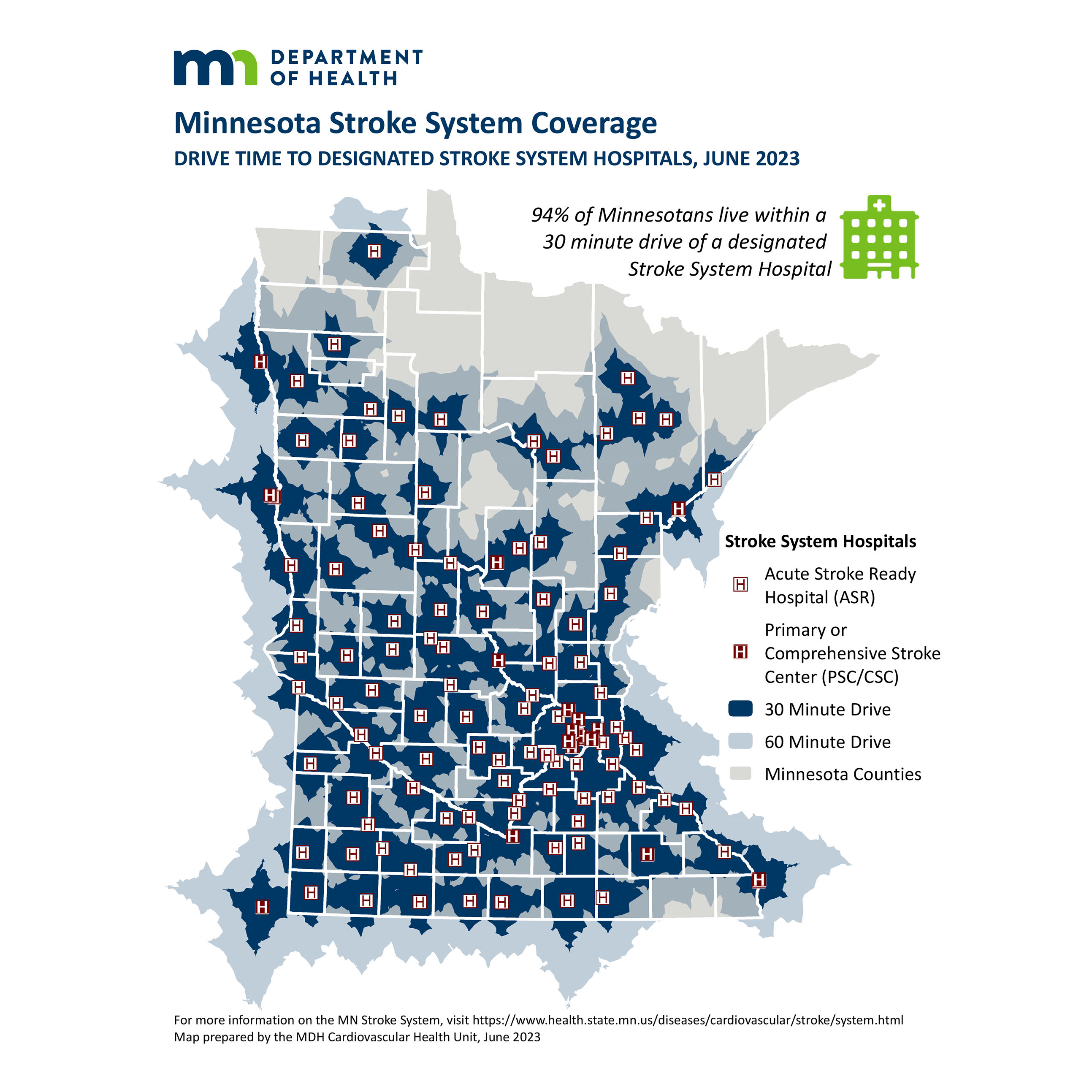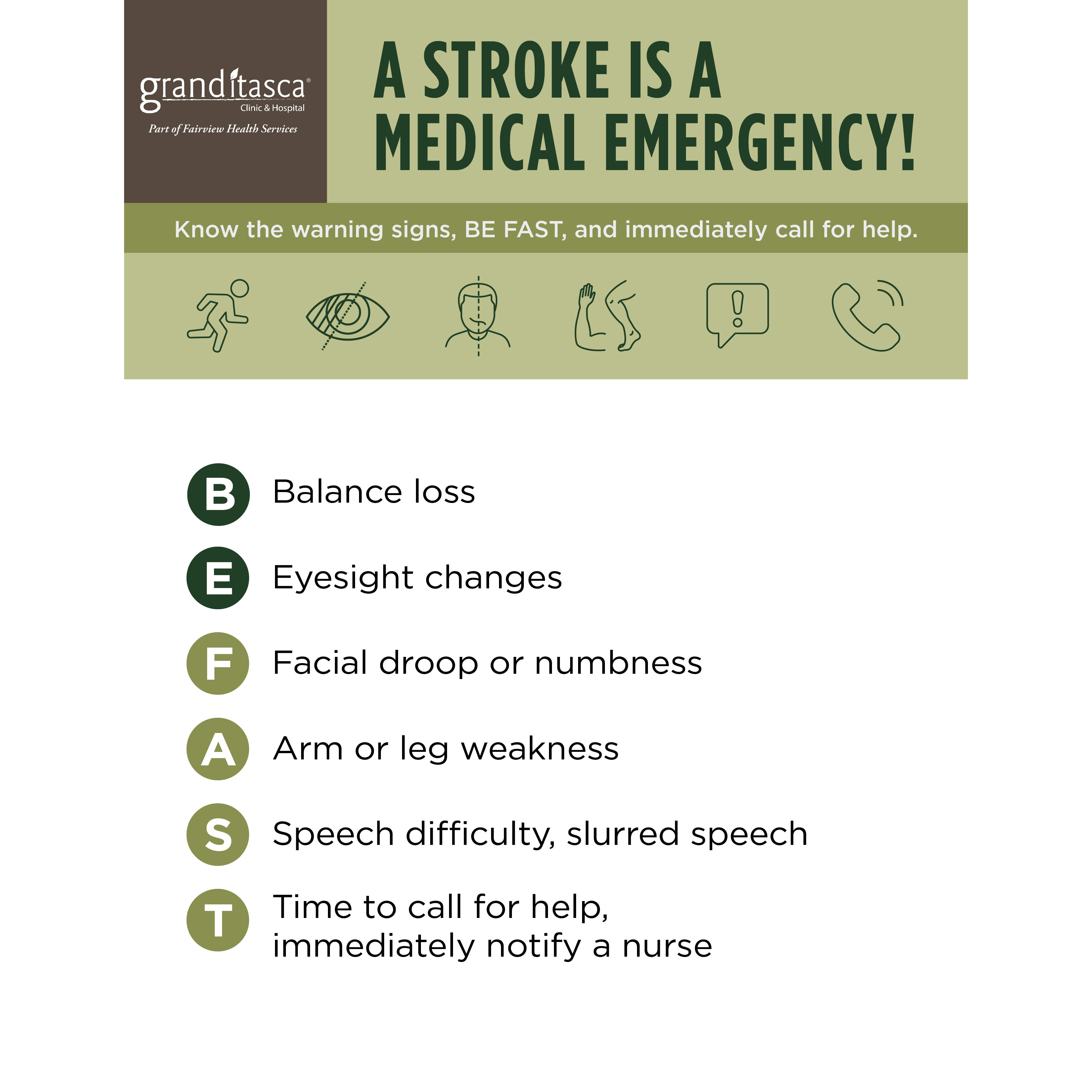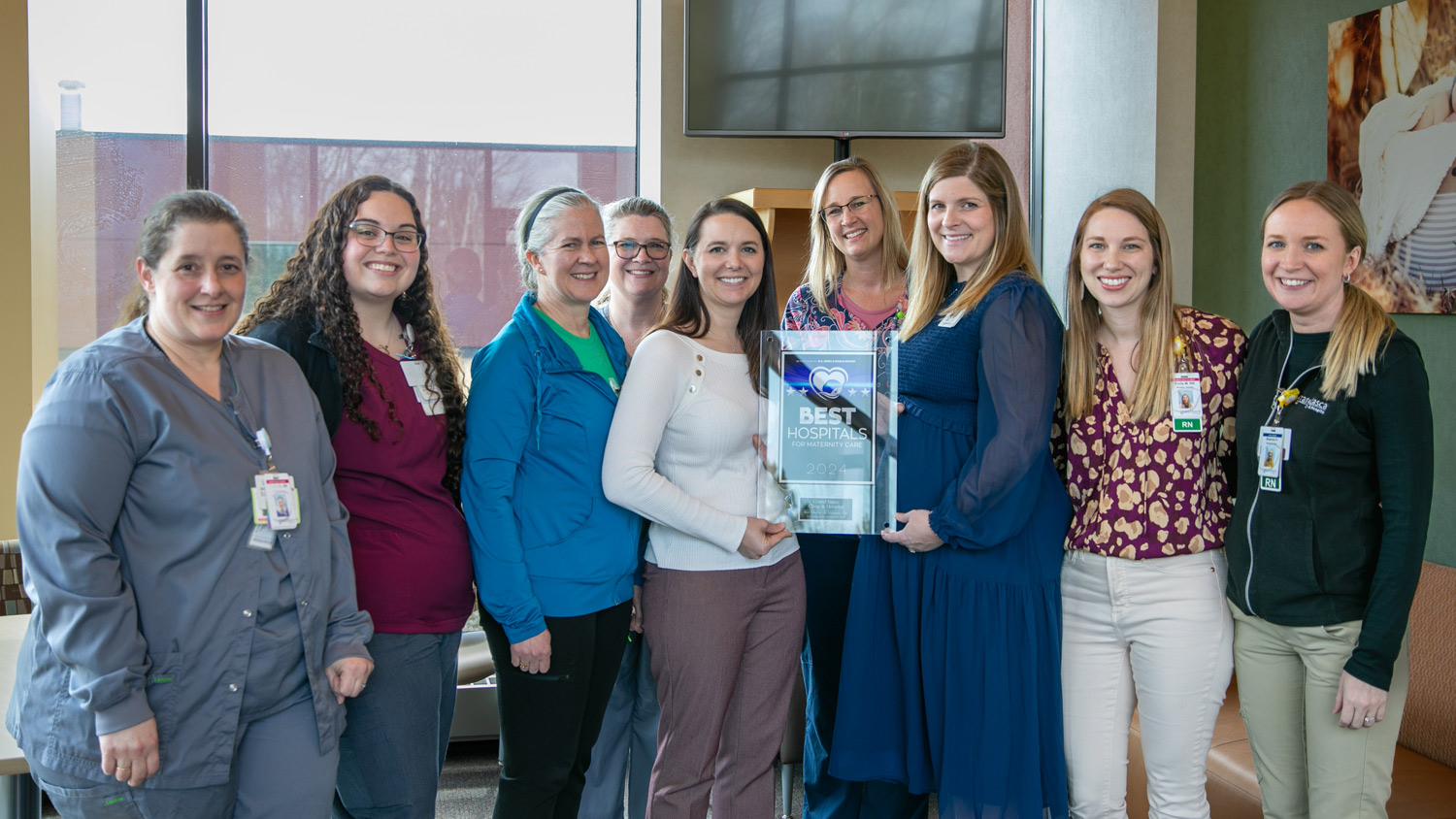
Latest News, Honors and Excellence
Celebrating Our Acute Stroke Ready Hospital Redesignation
We're thrilled to announce that Grand Itasca Clinic and Hospital has received the Acute Stroke Ready Hospital (ASRH) designation! We have proudly held this status since the designation's inception ten years ago, underscoring our decade-long commitment to providing exceptional care for stroke patients and enhancing patient outcomes.
- October 14, 2024
- By Staff Writer
The Importance of Local Access to Care
Grand Itasca is proud to be one of 120 hospitals recognized in Minnesota for our preparedness to evaluate, stabilize, and provide emergency treatment for patients experiencing acute stroke symptoms. Stroke is the fifth leading cause of death and a significant cause of disability in our state. Timely access to treatment is critical, as outcomes improve significantly for patients who receive care as soon as possible.
In 2013, the Minnesota Legislature allowed the Minnesota Department of Health (MDH) to designate hospitals as 'stroke hospitals,' including Acute Stroke Ready Hospitals, Primary Stroke Centers, and Comprehensive Stroke Centers. Each designation ensures hospitals are equipped to deliver quick and effective stroke treatment.
With these designations, 94% of Minnesotans now live within 30 minutes of a stroke hospital, significantly improving access to critical care. There are currently 97 Acute Stroke Ready Hospitals in Minnesota.
Kelly Handyside, our Stroke Program Coordinator, emphasizes, " With the high volume of stroke cases in our community, having access to immediate care close to home is critical. The faster we can administer treatment, the greater the chance for positive outcomes and recovery."

What Does It Mean to Be an Acute Stroke Ready Hospital?
This certification exhibits we can quickly stabilize and treat stroke patients, including giving life-saving medications and arranging transport to specialized care if needed. It also confirms that we possess the tools, technologies, and expertise to diagnose and treat strokes promptly. Time is critical when it comes to stroke care, and being an ASRH ensures that we can minimize the damage caused by this life-threatening condition, potentially saving lives and reducing long-term disabilities.
Grand Itasca's Stroke Medical Director and Hospitalist, Dr. Simon Lick, explains, "Every minute counts in stroke care. This designation ensures we are prepared to provide rapid and effective treatment, improving the chances for a successful recovery. This certification highlights our dedication to delivering high-quality care and meeting the needs of our community when it matters most."
A Collaborative Achievement
"Our incredible team is dedicated to providing the highest level of care to our stroke patients," shares Jenee Saloka, RN, Stroke Nurse Manager. "We continually evaluate and refine our processes to ensure we follow best practices in stroke care. Our nursing team is highly trained, with advanced education in stroke treatment, and is always ready to serve our community with skill and compassion. I couldn't be prouder of the commitment and expertise they bring every day!"
We are proud to hold the ASRH certification for ten consecutive years. We are committed to being at the forefront of stroke care, offering our community the critical services they need when every second counts.
B.E.F.A.S.T.
It is important for everyone to know how to spot a stroke quickly and call 9-1-1 at the first sign of a stroke. Local Emergency Medical Service (EMS) providers are trained to recognize stroke symptoms and will ensure patients are taken to the closest designated stroke center quickly. You can recognize the signs and symptoms of a stroke by remembering:
B - Balance loss - Is coordination or balance suddenly difficult?
E - Eyesight change - Is there a sudden change in vision?
F - Facial drooping - Does one side of the face droop, or is it numb?
A - Arm weakness - Is one arm weak or numb?
S - Slurred speech - Is speech slurred, are they unable to speak, or are they hard to understand?
T - Time to call 9-1-1 - If the person shows any of these symptoms, call 9-1-1 and get to a hospital immediately.

